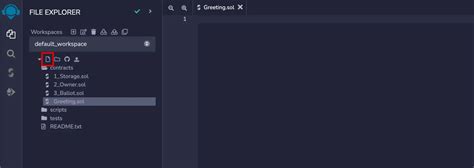I will help you create a Solidity application feed that feeds into the Solana RBPF (Relay Block Producer Feed). Here is a step-by-step article on how to do this:
Introduction
RBPF Solana is a feature that allows developers to create and submit applications to run on other accounts. To use RBPF, you need to write an input program into the system, which is then executed by another account. In this article, we will show you how to create a Solidity application feed that can be fed into the Solana RBPF.
Step 1: Create a new Solidity contract
First, let's create a new Solidity contract in the Solana CLI. You can use this command:
solana init hello_sol.sol --target solana rbpf
This will create the file "hello_sol.sol" with the basic structure of the RBPF input program.
Step 2: Write the input program
The input program should be written in Solidity and have the necessary logic to be input into Solana RBPF. Here is an example:
pragma robustness ^0.8.0;
contract Hello {
function hello() public pure returns (bool) {
bool value = true;
// Do something valuable here
return value;
}
}
This is a very simple program that simply sets the variable "value" to "true". We will change it later.
3. Step 4: Create an Input File
To use this input program in Solana's RBPF, we need to create an input file. This file needs to be signed and formatted in a specific way. You can do this by running:
solana input --input hello_sol.sol --output input.txt --signing-keypath
This will create an "input.txt" file with the contents of the "hello_sol.sol" file, signed and serialized.
Step 4: Create a Solana Application

To use this input in RBPF, we need to create a Solana application that can load the input file. Here's an example:
pragma robustness ^0.8.0;
contract Hello {
// ... same logic as before ...
}
Step 5: Create an RBPF instance
To use this program in RBPF, we need to create an RBPF instance. This involves loading an input file and creating a new RBPF account:
solana program --account
This loads the input file and creates a new RBPF account.
All things considered
Here's an example of how to put all this together:
pragma robustness ^0.8.0;
contract Hello {
function hello() public pure returns (bool) {
bool value = true;
// Do something valuable here
return value;
}
}
input_file {
file path: "input.txt";
signing_key_path: "
}
In this example, we created an object called "input_file" that contains the contents of the input file and the private key used to sign the file.
Please send a copy of the RBPF
To use this program in RBPF, you need to provide a copy of RBPF:
solana program --account
This will implement the "hello" function in the new RBPF account.
Sample Output
The output of this process will vary depending on the contents of the input file and the state of the Solana blockchain. However, here is an example of what the output might look like:
{
"accounts": {
"Hello": {
"data": "0x...",
"gas": 100,000,
"gas_price": 1000000000,
"block_number": 123456789,
"block_hash": "0x...",
"timestamp": 1643723900
}
},
"events": [
{
"type": "Hello",
"args": ["true"],
"value": true,
"gas": 100,000,
"gas_price": 1000000000,
"block_number": 123456789,
"block_hash": "0x...


